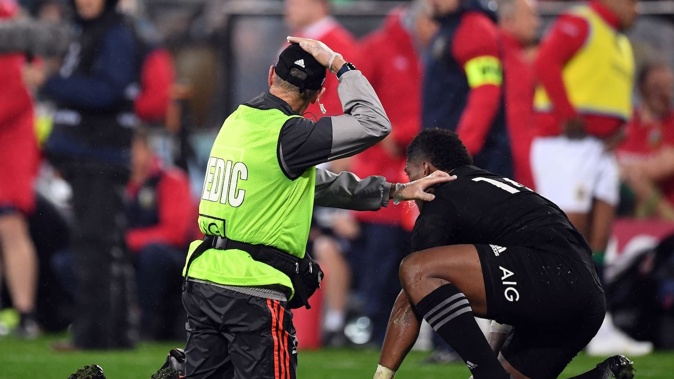
ACC’s 2024 statistics for concussions suffered in sport indicate Whanganui and surrounding districts are improving concussion prevention.
Since ACC launched the National Concussion Guidelines for Community Sport more than a year ago, there has been a steady increase in sports-related claims across Aotearoa, suggesting more awareness of symptoms.
The guidelines provide a standardised approach to managing concussion, aimed at improving the health outcomes and wellbeing of people who play community sport.
ACC accepted nearly 2000 more claims related to sports concussions in 2024 than the previous year.
The Whanganui District recorded 74 new claims in 2024, 30 fewer than the previous year.
It was the lowest number of claims since Covid-impacted 2020.
Of the 74 claims, 40% were from rugby, 12% were in football and the rest were scattered across other sports.
The Ruapehu District recorded 16 fewer new claims in 2024 with 55, and the Rangitīkei District recorded 17 new sports-related concussion claims - two more than 2023.
 Blue cards were introduced in 2017 by NZ Rugby, given to players suspected of suffering a concussion during a game.
Blue cards were introduced in 2017 by NZ Rugby, given to players suspected of suffering a concussion during a game.
Total claims costs for Whanganui were down nearly $238,900 from 2023’s $1.3m.
Rangitikei‘s total claims costs were down $6000, while Ruapehu recorded an increase of nearly $40,000 despite its fewer new claims.
In 2024, $80m went towards helping people recover from a sports-related concussion in New Zealand, an increase from $65m the previous year.
New research from New Zealand, published in April, found that signatures of abnormal amounts of iron in the brain could point the way to more reliable diagnosis and prognosis for concussion.
It found that a build-up of iron in the brain – which can signal damaging disruption to cells and brain tissue – occurred in the early stages of a mild traumatic brain injury.
ACC injury prevention partner Nat Hardaker said early management of concussion could improve long-term outcomes.
“We’re committed to changing attitudes and understanding of concussion in sport. The National Concussion Guidelines give community sport the support it needs to do this,” she said.
“Concussion is a brain injury and can happen in any sport - you don’t have to get knocked out or even be hit on the head to be concussed.”
Taking the time to make a complete recovery from a concussion before returning to play ensured players got back to their best, Hardaker said.
People who experience a concussion must be symptom-free for 14 days post-injury before a graduated return to play and complete a minimum period of 21 days away from full competition.
“Concussion is everyone’s responsibility – everyone can learn to recognise the signs and what to do," Hardaker said.
The Four Rs of concussion:
- Recognise the signs and symptoms.
- Remove the person from play.
- Recover by seeing a doctor and completing a concussion recovery programme.
- Return to school, work or sport once you have followed the recovery programme and have been cleared by your doctor.
Take your Radio, Podcasts and Music with you









